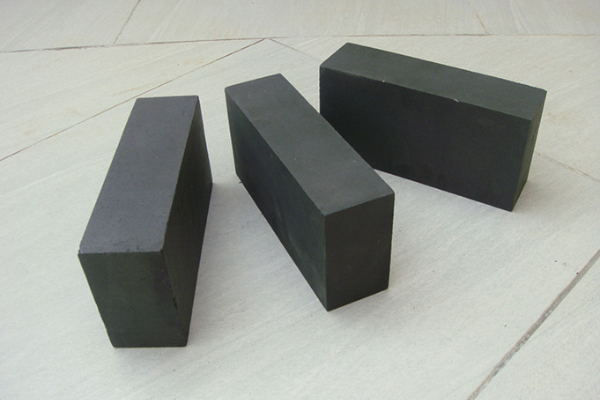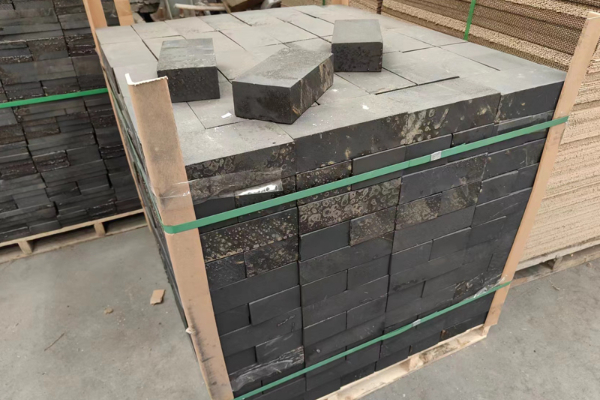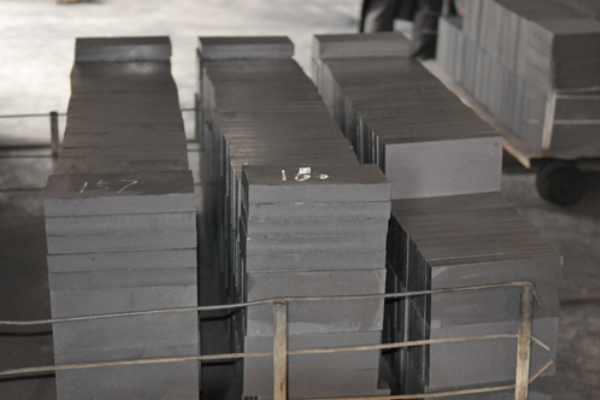Einführung von korrosionsbeständigen Kohlenstoffsteinen
Für korrosionsbeständige Kohlenstoffsteine wird erdölkalzinierter Koks verwendet, Hüttenkoks, und Graphitpulver als Zuschlagstoffe, mit Phenolharz als Bindemittel. Nach dem Rühren (flüssiges Phenolharz ist das Bindemittel), Stanzformen, high-temperature curing, and then impregnation with liquid phenolic resin It is processed by processes such as solidification and solidification and has super acid resistance and corrosion resistance. It is an ideal lining anti-corrosion material for the chemical industry, phosphate fertilizer, electric power energy, Metallurgie, mining, Atomkraft, Petroleum, water treatment, usw.

Characteristics of graphite carbon brick
- Ausgezeichnete Korrosionsbeständigkeit
The product uses calcined petroleum coke as aggregate and coal pitch as binder. The finished product is both acid and alkali-resistant and high-temperature-resistant. - Stable performance and strong durability
The product is roasted at high temperature and its structure is extremely stable. The structure of the product will not change with temperature changes. - Accurate appearance and dimensions
The finished product is molded and then machined, with good quality and precise dimensions. All products can be produced according to user requirements and can fully meet various construction and masonry technology requirements.

Physical and chemical indicators of anti-corrosion carbon bricks
| Artikel | unit | Anti-corrosion carbon brick |
| Capacity | G/cm3 | 1.65-1.7 |
| Compressive strength | MPa | >45 |
| Biegefestigkeit | MPa | >12 |
| Maximale Betriebstemperatur | ℃ | 150 |
| Anti-Penetration | MPa | 0.8 |
What acidic substances can anti-corrosion carbon bricks deal with?

Anti-corrosion carbon bricks can be used in some hydrofluoric acid and hot phosphoric acid environments, Und säurebeständige Ziegel or säurebeständige Keramikfliesen can be used in acidic environments such as sulfuric acid, Salzsäure, und Salpetersäure.
 Rongsheng Refractories Factory
Rongsheng Refractories Factory
WeChat
Scannen Sie den QR-Code mit wechat